Austin, Texas, Chasing History With Olympic Trials Bid
Austin, Texas, Chasing History With Olympic Trials Bid
Austin is one of the four cities bidding to host the 2020 Olympic Trials Marathon. This would be Austin's first time hosting a USATF championship event.
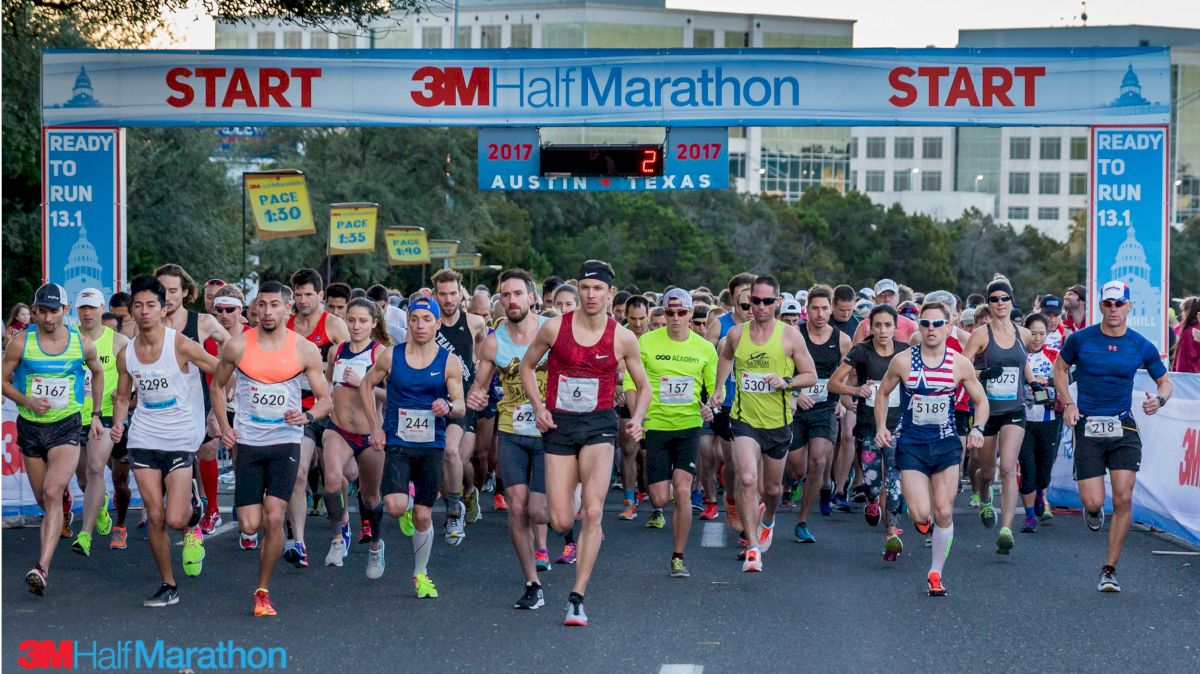
Austin, Texas, has hosted the NCAA track and field championships and currently stages one of the largest track meets of the calendar, the Texas Relays. The city has a robust road racing scene, bolstered by the presence of elite athletes and high-level training groups. But Austin has never hosted a USA track and field championship event — not for any distance on the roads, cross country or track and field. And certainly not the Olympic Trials.
But that could change — soon.
Last week, USA Track and Field announced that Austin is one of the four cities that have bid to host the 2020 Olympic Marathon Trials.
The bid came together with an assist from Austin’s most famous runner. A USATF official spoke with Olympic silver medalist Leo Manzano last summer about potentially staging events in Austin.
“The idea of hosting of an Olympic Trials here definitely came up. Nothing was promised, it was just like, ‘Hey, you know what do you think?,’ Manzano said. “Having the Olympic Trials in Austin would be phenomenal especially because the city is so big-time into the running.”
Manzano had a person in mind to connect with USATF about hosting the Olympic Trials — Jack Murray.
Murray is one of the three owners of High Five Events, an Austin-based event production company that owns the Austin Marathon. He is also the chairman of the Austin Sports Commission. An avid runner and a self proclaimed “running nerd,” Murray jumped at the opportunity to open the door to bringing USA championship-level events to Austin.
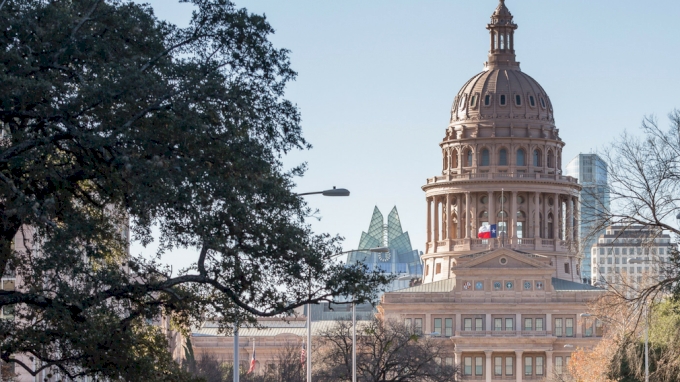
Photo by Ed Sparks
“Whether that be championship mile events, championship 5K, 10K, all these kind of underserved races," Murray said. "Everyone wants the trials, right? We were interested in more than just the Trials. It just so happens we happen to be right in the middle of the Olympic Trials bidding."
Murray submitted the paperwork for Austin’s intent to bid and is currently working on a request for proposal from USATF. The 68-page document outlines all of the logistical and budgetary requirements of the host city.
The deadline for completion of the RFP is March 19. At that point, USATF will invite selected cities to Indianapolis to make final presentations with the ultimate decision taking place on April 6. Atlanta, Chattanooga, and Orlando also entered bids — none of the other bidding cities have ever hosted an Olympic Trials marathon.
To help, Murray has reached out to people connected with Houston’s successful bid to host the 2012 edition of the race and also received assistance from Merhawi Keflezighi, Meb Keflezighi’s brother, and Manzano’s agent.
If selected, Austin would host the Olympic Trials early in 2020, the day before the Austin Marathon on a looped course downtown.
What Austin lacks in championship pedigree, Murray thinks it makes up for in the city’s culture of running.
“Austin’s a running town from top to bottom; it’s built for running.”
And it’s filled with runners.
According to Strava data, Austin has the eighth-highest amount of runners per capita in the United States. It was also ranked as the 12th-fittest city in the United States according to the 2017 American Fitness Index.
With the Olympic Trials, Murray sees the opportunity to create a festival-like atmosphere around the race — an Austin City Limits or South by Southwest for running.
“I think there would be a mass amount of people coming from Houston, Dallas, San Antonio along with all the people in Austin coming out to spectate at this thing," Murray said. "I think the streets would just be lined. I think it would be hard to find a place, to even get in on the fence to look at this . . . there’d be that many people. That’s my gut."
As for the course, they haven’t settled on the final route yet. USATF mandates that the course for the marathon be a “criterium-looped course with a minimum length of four miles.” Murray says the course will be downtown and try to incorporate the Capitol, 6th Street, and other Austin landmarks.
“One of the keys is to make it as fast as we can without compromising the energy of the race,” he said.
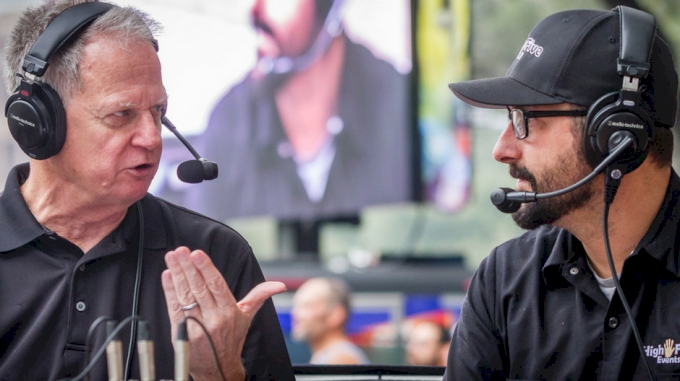
Murray (right) with race commentator Toni Reavis | Photo by Ed Sparks
He has run all the proposed courses and thinks staging the race downtown helps Austin’s case.
“It’s alive, it’s vibrant," he said. "Lots of people live downtown. They play downtown. We have a huge entertainment district and this to our advantage. Our most popular running venue is downtown.”
The plan to stage the race the day before the Austin Marathon follows the pattern of recent host cities — Olympic Trials on Saturday, marathon for the masses on Sunday. It’s a formula that has been successful in the past, allowing the Trials to capitalize on the existing running enthusiasm that comes from marathon weekend.
That setup also comes with some complications. The Trials and the host city marathon typically have different sponsors, forcing the host city to be strategic about what — if any — parts of the course they want to use for both Saturday and Sunday’s races. Any conflicting sponsorship signage on the course needs to be switched out by the next day.
There are also the logistical hurdles that Austin’s bid needs to clear with regards to acquiring permits with the the city — closing downtown for two days is a tougher sell than for just one. But Murray is optimistic all that will be sorted out before the March 19 deadline.
Of the three other cities announced, Atlanta is particularly formidable. The city has hosted an Olympic Games and the Atlanta Track Club’s executive director Rich Kenah is an Olympian with deep connections in the sport. The club also puts on the Peachtree 15K, which boats an elite field and 60,000 entrants each year.
But the Olympic Trials isn’t about big numbers. There will be around 350 entrants and the existing USATF structure means that the role of the host city is different than with a standalone race.
“The event itself is not a massive production compared to the marathon the next day," Murray said. "There’s 300 athletes running on a looped course. Whereas the day after you are running 26 miles with 17,000 runners, directing an event for 17,000 people is obviously a lot more challenging than for 300.
“I think most of the effort here will go into integrating with all the different partners that USATF has.”
With the presence of three other bids — and the possibility of more entering their name before the March deadline — there’s a possibility Austin won’t win. This is, after all, their first attempt at trying to land a major USATF championship. Regardless, Murray is set on Austin becoming a site for the highest level competitions in the sport.
“If we don’t get it this year, we will re-bid for 2024," he said. "This is not a one-and-done thing. We want to host the Olympic Trials and we’ll get it eventually. If they don’t think we’re ready or our bid is not strong enough, then we’ll learn from that and we will submit again on the next round.”
Related Content
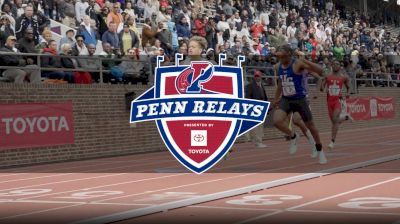 Penn Relays 2024 Preview Hype
Penn Relays 2024 Preview HypeApr 23, 2024
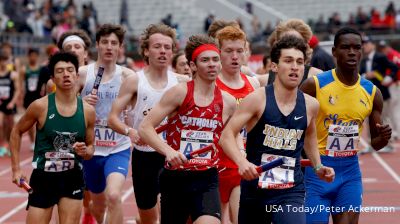 Qualifying Standards For Penn Relays 2024: Here's What To Know
Qualifying Standards For Penn Relays 2024: Here's What To KnowApr 23, 2024
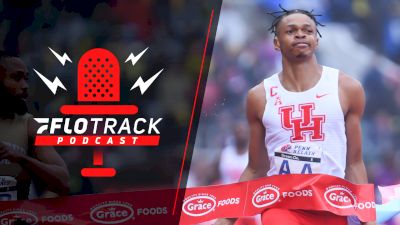 Diamond League Xiamen Reactions, Plus Previewing Penn Relays | The FloTrack Podcast (Ep. 663)
Diamond League Xiamen Reactions, Plus Previewing Penn Relays | The FloTrack Podcast (Ep. 663)Apr 23, 2024
 Here's Why You Don't Want To Miss The Bryan Clay Invitational
Here's Why You Don't Want To Miss The Bryan Clay InvitationalApr 22, 2024
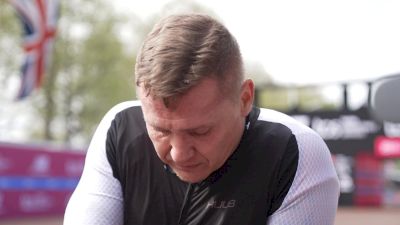 David Weir Takes Third At 2024 London Marathon
David Weir Takes Third At 2024 London MarathonApr 21, 2024
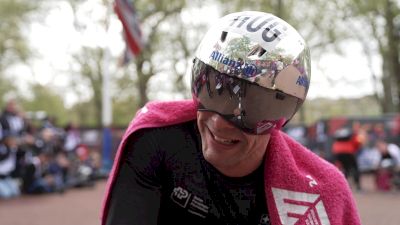 Marcel Hug Wins London Marathon A Week After Winning Boston Marathon
Marcel Hug Wins London Marathon A Week After Winning Boston MarathonApr 21, 2024
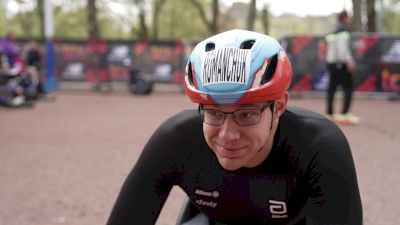 Daniel Romanchuk Second In Men's Wheelchair Race In London
Daniel Romanchuk Second In Men's Wheelchair Race In LondonApr 21, 2024
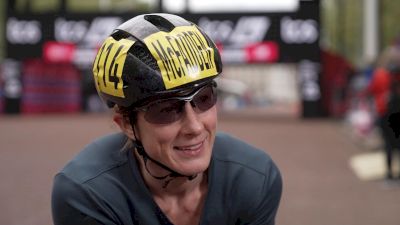 Tatyana McFadden Returns To London Marathon Elite Women's Wheelchair Podium
Tatyana McFadden Returns To London Marathon Elite Women's Wheelchair PodiumApr 21, 2024
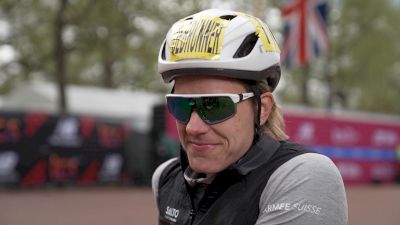 Catherine Debrunner Dominates Elite Women's Wheelchair Field In London
Catherine Debrunner Dominates Elite Women's Wheelchair Field In LondonApr 21, 2024